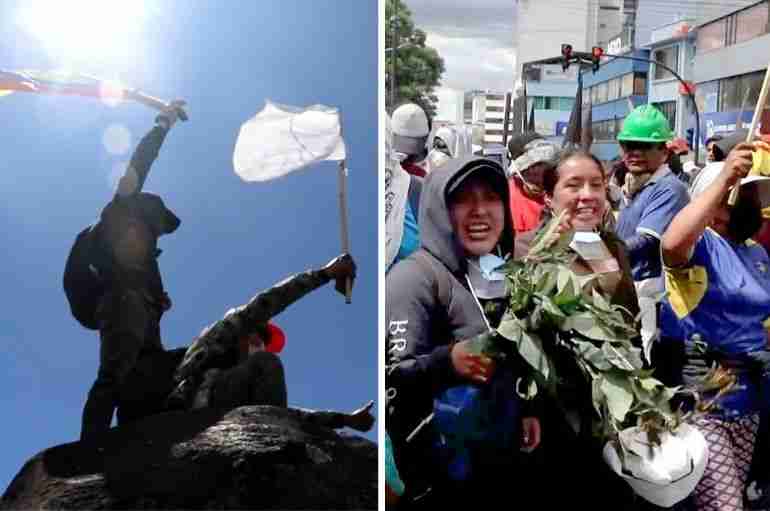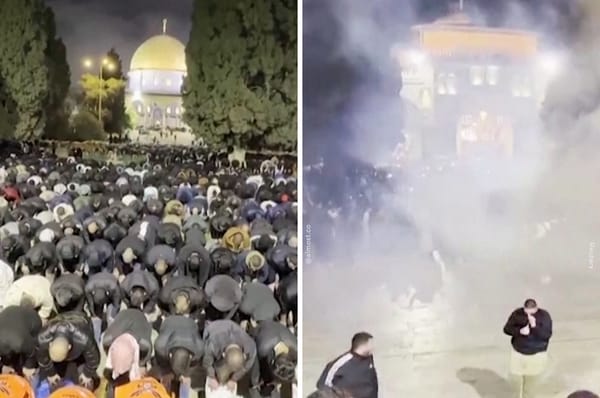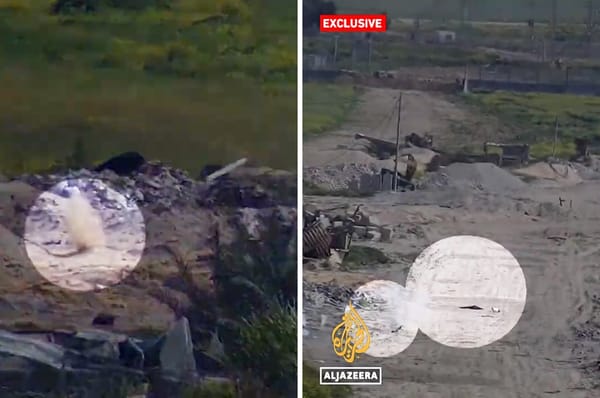Indigenous People In Ecuador Are Leading Mass Protests Against Rising Fuel And Food Prices
Following two weeks of staging anti-government protest over rising fuel and food prices across Ecuador, Indigenous organizations will end an 18-day strike after reaching an agreement with the government about their demands on Thursday June 30.

Following two weeks of staging anti-government protest over rising fuel and food prices across Ecuador, Indigenous organizations will end an 18-day strike after reaching an agreement with the government about their demands on Thursday June 30.
The Confederation of Indigenous Nationalities of Ecuador (CONAIE) organized a national strike and staged protests across the country starting from June 13.
The Indigenous organization issued a list of 10 demands to President Guillermo Lasso, which include freezing fuel prices, suspending bank debts, subsidies to help the farming sector and suspending of oil expansion.
Aside from Indigenous people, other Ecuadorians joined to protest the rising cost of living and unemployment which has worsen during the COVID-19 pandemic.
“The people of Ecuador are facing poverty. There’s inequality and injustice, and what has awoken in Ecuadoreans is indignation,” the leader of CONAIE, Leonidas Iza, said, according to the New York Times.
Major transit ways have been blocked throughout the weeks as a result of the protests, and the president has declared a state of emergency in six Ecuadorian states.
Ecuador Alliance for Human Rights has reported 5 deaths and at least 100 injured demonstrators during the protests.
Meanwhile the Ecuadorian police tweeted that at least 61 police officers have been injured.
Citizens have complained about food shortages since the road blockades have prevented supplies from reaching the capital, Quito.
On Friday June 24, President Lasso accused the leader of CONAIE of trying to overthrow the government, saying that Iza “can no longer control the situation” and that “the violence perpetrated by infiltrated criminals has gotten out of hand.”
Initially, the organization had refused to meet with the government, instead asking the president to publicly answer to the demands.
“We have told the president that we won’t go to another dialogue to be mocked and mistreated,” Iza told the Guardian.
On Sunday June 26, Lasso announced a fuel price reduction of 10 cents per gallon, changing gasoline prices from $2.55 to $2.45 per gallon and diesel from $1.90 to $1.80 per gallon.
Although the organization expressed that the change in fuel prices is not enough, they agreed to meet the government the same afternoon.
Negotiations began on Monday but were suspended the next day after the government blamed the death of a soldier on demonstrators, according to Al Jazeera.
The government then announced that negotiations would resume, while the president re-declared a month-long state of emergency in four provinces, having only just lifted the previous one.
Finally, the government agreed to lower the price of gasoline to 15 cents per gallon, setting the prices at $2.40 and $1.75, which was the price originally demanded by the CONAIE.
A limit on oil and mining expansion to areas such as national parks and water sources has also been set.
The government now has 90 days to deliver its promises.




